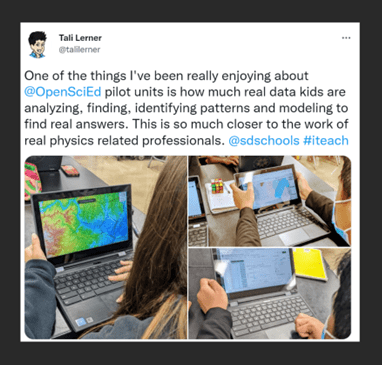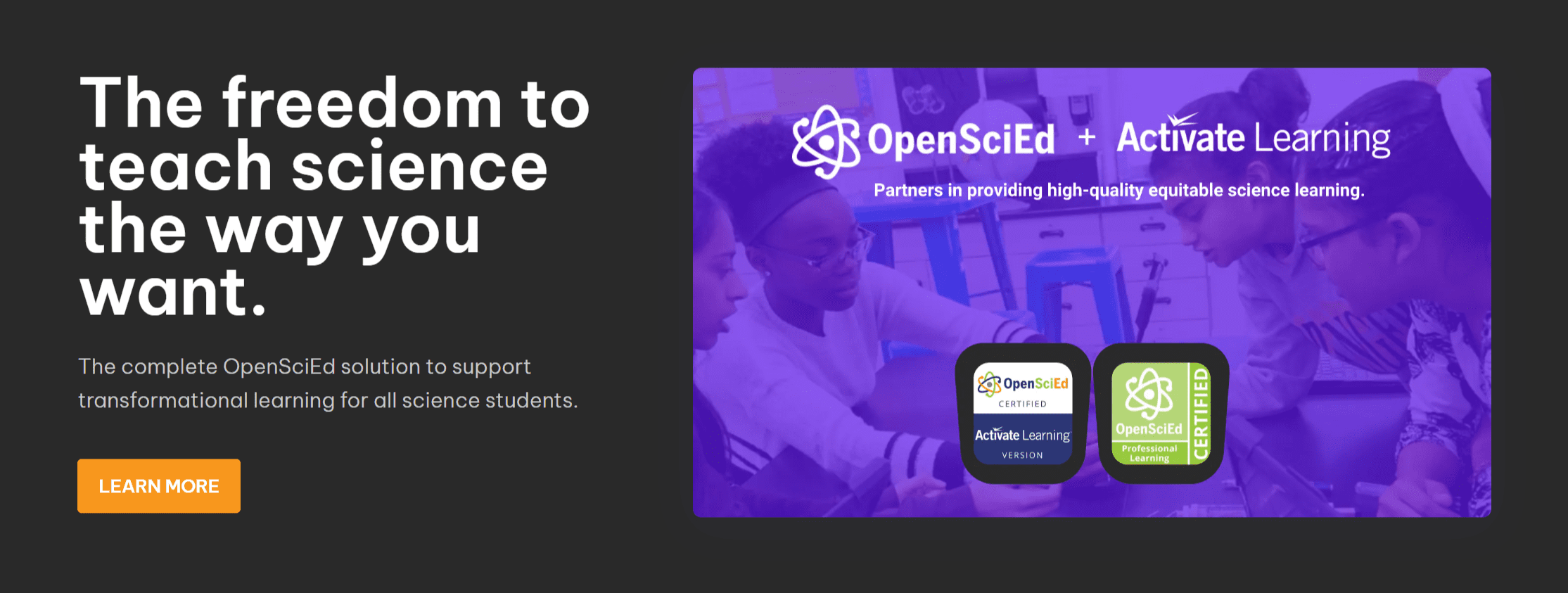The Successful Road to OpenSciEd Implementation Starts with a Great Pilot
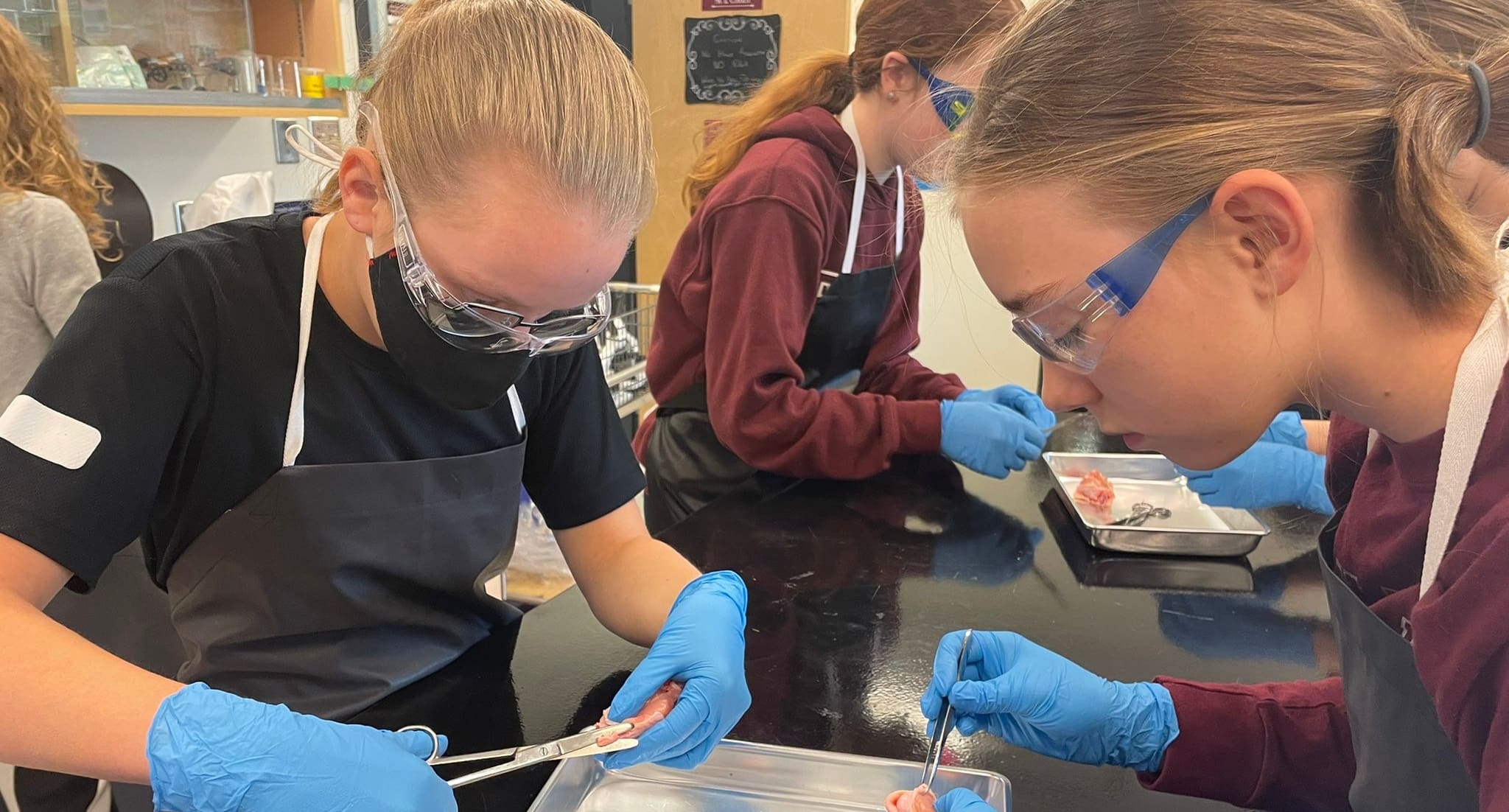
Why Piloting a Curriculum is Crucial to OpenSciEd Implementation Success
The OpenSciEd project aims to provide high-quality, free teaching materials and curricula for science education-giving teachers access to the best learning techniques in the world. It has quickly gained popularity as the science resource methodology that best aligns with the Next Generation Science Standards (NGSS).
One of the many reasons teachers love OpenSciEd curriculum is that it gives them the freedom and flexibility to adapt the materials for a more meaningful learning experience. It can be easily tailored to different cultures, environments, and experiences without losing its impact on student learning and retention.
But before implementing the OpenSciEd curriculum, schools should first lay a solid foundation for implementation with a rigorous pilot program. A pilot program allows districts to "test drive" a curriculum by implementing all or parts of a curriculum in real-time, with real students, for a limited time, to learn whether or not the curriculum will meet predefined goals. During a pilot program, educators use simulations to measure how effectively their students learn using the curriculum in their classrooms.
Administrators, curriculum directors, teachers, students, school boards, and sometimes even parents can participate in a curriculum pilot and provide invaluable feedback on the curriculum, which can contribute significantly to deciding whether or not the curriculum is adopted. If the curriculum is adopted, this feedback also offers a roadmap of sorts for how to best implement the curriculum and provide teachers with ongoing professional learning.
Dos and Don'ts of Launching an OpenSciEd Implementation Pilot Program
Currently, OpenSciEd is being piloted in at least 10 states which is a seismic shift away from traditional science learning based on lectures and memorizing information to multidimensional, experiential learning. OpenSciEd puts students at the center of exploration, investigation, and discourse. In a recent article published at The 74 (Washington Hopes New Science Curriculum Will Boost Student Engagement), author, Joshua Parrish, explored this initiative by states to pilot OpenSciEd analyzed how it's helping schools to get students back on track after they suffered significant learning loss during the pandemic.
As we discussed in our first blog post in this series, How to Create a Successful OpenSciEd Implementation Strategy, measurement is mission-critical for understanding the impact of a pilot program. Live testing is more effective when clear goals have been defined and there is a substantive way to measure the impact of those goals.
During the field test, pilot administrators should create a strategy for how they will gather and share evidence of students' learning. This evidence could be survey data about what students learned and how it was applied to their lives outside of school or concrete examples from student work like essays and projects demonstrating said skills.
Getting informal feedback from students and teachers expressing how they feel about their learning experience using the pilot curriculum can be extremely insightful and capture insights that more formal assessments can't. This feedback should be gathered from numerous sources including social media where teachers enthusiastically post their students' development while using the curriculum.
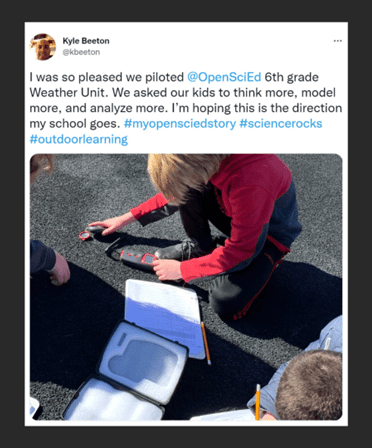
Launching a pilot program can be complicated and rife with pitfalls if certain criteria are not considered during the planning stage. There are some do's and don'ts that school leaders should keep in mind when launching a pilot program.
Do: Identify Review Criteria
Clarify the review criteria used to evaluate programs in a pilot to better understand how successful it will likely be. While no two pilot programs are the same, acquiring case studies from other districts that have piloted the curriculum can be very helpful. Some states are even openly sharing the results of their OpenSciEd field tests like Massachusetts: OpenSciEd in Massachusetts Middle School Field Test Focus Group and Survey Summary
Don't: Skimp on Teacher Support
Without giving teachers the proper, substantive and ongoing professional learning necessary for them to build the confidence and new skills to teach science in a way that's very different from how they've taught throughout their career, the pilot program will likely fail. In our recent blog post on implementing OpenSciEd, Tracy Marmolejo (Professional Learning Manager) notes, "The biggest challenge is when school systems implement a new science program without giving the requisite time for proper teacher training." And one more thing regarding teacher support, do make the pilot fun and exciting for teachers!
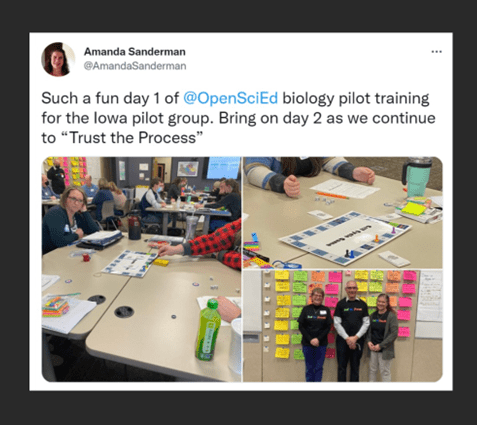
Don't: Overlook Stakeholders
Teachers should always be given a voice in decisions that affect them, but other members of the school community-students and their parents-should also be invited to participate in the pilot and feel free to contribute.
Do: Choose the Right Program Partners and Advisors
Choosing the right curriculum implementation advisors can be a major deciding factor in the success of piloting curriculum. Activate Learning is a global leader in standards-based, K-12 curriculum publishing. Our curriculum authors are also the authors of OpenSciEd. As a certified OpenSciEd distributor and professional learning provider, we provide the platform, unit materials, and professional learning to make implementation simple and fast.
Our strategies for piloting and implementing OpenSciEd allow for a painless transition from traditional science curriculum to OpenSciEd. For the best outcomes piloting OpenSciEd, work with experienced curriculum advisors with a proven track record.
The road to successful OpenSciEd curriculum implementation starts with a pilot and ends with happy, engaged students who love learning science!
If you have any questions about OpenSciEd implementation, reach out to us via this contact form and one of our curriculum specialists will be happy to answer your questions.
* * * * *
.

